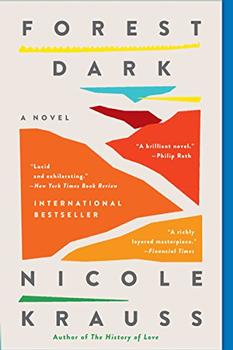Summary | Excerpt | Reviews | Beyond the book | Read-Alikes | Genres & Themes | Author Bio

Knesset Minister Baruch Kotler could have avoided his present predicament if he had only agreed to be quiet about his staunch opposition to the government's forcible withdrawal from a large block of West Bank settlements. Instead, the scandal of his affair is about to hit the front pages of every Israeli newspaper. That's why Kotler has to escape with his mistress - even if it is for just a week. Kotler chooses Yalta as their hiding place, the same Ukrainian resort town where he vacationed as a young boy. Those good times were long before his growing Zionism, his 13 years of imprisonment, and becoming the poster boy for Soviet Jewry's human rights struggle. Now, by fate or by accident, he comes face to face with the very man who betrayed him to the KGB all those years ago, Chaim (aka Volodya) Tankilevich.
In The Betrayers, David Bezmozgis builds us a 2014 universe that is different from the one we live in. (This is due to the fact that, between writing the novel and its publication, political events transpired, making his story more fiction than fact, an issue he addresses in an afterword.) In the world of The Betrayers, the Israeli Government has finally decided to make some land concessions and voted for an immediate evacuation of a large number of West Bank settlements. Furthermore, Bezmozgis' Crimea still belongs to the Ukraine. These vast leaps away from reality make building a contemporary fictional story far more tenuous that one would imagine. This is mostly because the poetic license we allow and accept freely in historical fiction doesn't fly as well when telling a story that is supposed to have happened only a few weeks or months ago.
This could easily have gone in the wrong direction for Bezmozgis, but instead of taking the simple road to some obvious or comical conclusion, he finds a far more surprising story by investigating the various consequences of betrayal. Of course, as the title suggests, several betrayals are going on here. The main ones are Kotler's betrayal of his wife with his mistress, Israel's betrayal of its West Bank settlers, and Tankilevich's outing of Kotler to the KGB. Can a betrayal ever be morally justified? Can positive consequences of a betrayal absolve the betrayer? Finally, what are the consequences of betraying one's own conscience? To these questions, Bezmozgis never gives us the easy black-or-white answers, and allows readers to ponder how they might react in the same situations.
Bezmozgis also looks at the elements of devotion, or perhaps a better word would be dedication, or both. This includes Kotler's affair. Think about it. Here is a man imprisoned for 13 years, just shortly after getting married, and his wife has no choice but to fight for his freedom; a struggle she takes internationally. What kind of an effect could that have on a brand-new marriage, and what made such a high profile woman fade so quickly into the woodwork after her husband's release? Perhaps she decided that once she accomplished her mission, the limelight needed to stay on her husband. Then there's the fact that she became religious while her husband remained secular. It only makes sense that the spark these two had when they met and married couldn't fully survive these trials.
With all of this, one might expect a sweeping epic of a novel. However, Bezmozgis distills this story with swift strokes of suggestion, in the perfect embodiment of "show, don't tell." With his clear, straightforward style, Kotler becomes an intellectual with a sharp mind and tongue to match; someone who knows his strengths and weaknesses, but is still curious and daring enough to constantly test boundaries. Matching this against Tankilevich's self-righteousness, anger and long-standing guilt, Bezmozgis brings us to a powerfully dramatic climax with prose that bursts through the pages and sparkles like firecrackers. Then he brings us back to his conclusion in the most honest and human way, with few problems solved and new dilemmas compounding the previous ones.
To note: some readers might not be able to understand this book fully without deeper knowledge of the history of the Crimea, its Jews and significance to Israel, or the real-life personalities these characters are based upon (some of which can be found in the Beyond the Book). As for any drawbacks, I found one tiny mistake, which only a Jerusalemite would catch. This had to do with the purchase of a coat at a certain shopping mall, which according to the timeline of this book wouldn't have been open yet. However, this only reduces my rating slightly. The Betrayers is still a thoroughly compelling story, with an enormous scope, and is amazingly concise and strikingly written.
![]() This review was originally published in The BookBrowse Review in November 2014, and has been updated for the
July 2015 edition.
Click here to go to this issue.
This review was originally published in The BookBrowse Review in November 2014, and has been updated for the
July 2015 edition.
Click here to go to this issue.

If you liked The Betrayers, try these:

by Nicole Krauss
Published 2018
Bursting with life and humor, Forest Dark is a profound, mesmerizing novel of metamorphosis and self-realization—of looking beyond all that is visible towards the infinite.

by Kevin Powers
Published 2013
With profound emotional insight, especially into the effects of a hidden war on mothers and families at home, The Yellow Birds is a groundbreaking novel about the costs of war that is destined to become a classic.
Your guide toexceptional books
BookBrowse seeks out and recommends the best in contemporary fiction and nonfiction—books that not only engage and entertain but also deepen our understanding of ourselves and the world around us.